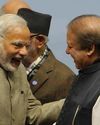To survive the cognitive revolution sweeping the world, our IT engineers need to move out of their zones of comfort.

RAPID ADVANCES IN machine learning and the spectacular success of artificial intelligence (AI) software in, say, self-driving cars, voice recognition and chatbots for customer service are sending shivers of anxiety through IT professionals. The havoc that robots and automation technology have wrought with the jobs of blue-collar workers on the shopfloor is now travelling upward into white-collar offices and not a day passes without a new report about automation eliminating jobs. In India, the IT sector—that includes actual software developers, application maintenance staff, tech support personnel and BPO call centre operators—seems to be particularly vulnerable and it is no secret that a sense of doom and gloom hangs over the cubicles and around coffee machines in large and small IT companies.
To make matters worse, some companies have started to shed mid-level people managers, who have stopped writing code for years, and even senior managers who give poor returns of billability on their bloated salaries. The last straw on the back of the vanishing optimism is the reduction in campus hiring of busloads of low-quality engineers from the hundreds of engineering colleges that have mushroomed on the promise of the Y2K-inspired IT revolution. How much of this gloomy scenario is true and what can be done to bring the sunshine back? Obviously there is no quick fix, but let us explore the terrain to seek a way out of these difficult times.
This story is from the August 2017 edition of Swarajya Mag.
Start your 7-day Magzter GOLD free trial to access thousands of curated premium stories, and 9,000+ magazines and newspapers.
Already a subscriber ? Sign In
This story is from the August 2017 edition of Swarajya Mag.
Start your 7-day Magzter GOLD free trial to access thousands of curated premium stories, and 9,000+ magazines and newspapers.
Already a subscriber? Sign In

Refuging Progess
There is a well-orchestrated global conspiracy to deny scientific and technological developments from the West to Third World countries.

The Monk Of Science
Vivekananda believed that Religion should be subjected to scientific methods of investigation. The third and concluding part of our series on the Swami and his views on science.
The Next Step
Indian technical manpower can be trained for high-value-added emerging services in the era of mass commoditisation of hardware.
The Threat Of Autarchy
The force of globalisation is an irreversible reality, and it is countries like India and China that will nurture it going forward.

Neanderthals: The Womb Of Caves
Recent discoveries indicate that Neanderthals may have had a rich inner life, including symbolic thought. Indeed, they may have been the progenitors of human religions.

Getting India's World Right
Incremental concessions will get India nowhere with Pakistan and China. What we need is a classically conservative foreign policy, based on realism.

The Hesitant Orbit
In order to march boldly ahead into the deep space, New Delhi must work towards building a station, boost its techno-economic planning and use the Indian Space Research Organisation smartly.

Nudges And Narratives
The debate surrounding Sanjay Leela Bhansali’s Padmavati brings India a complex network of portraits within a cultural world-system.

The Spell Of Specialisation
THE INDIAN ADMINISTRATIVE SERVICE NEEDS AN URGENT REJIG. THE KEY TO SPEED AND EFFICIENCY LIES IN PUTTING AN END TO A GENERALIST APPROACH AND IN GOING FOR A NEW SERVICE.
The Great Gamble
With demonetisation, the prime minister has taken a huge risk— both economic and political. He must succeed, because this move could transform both our economy and our society.